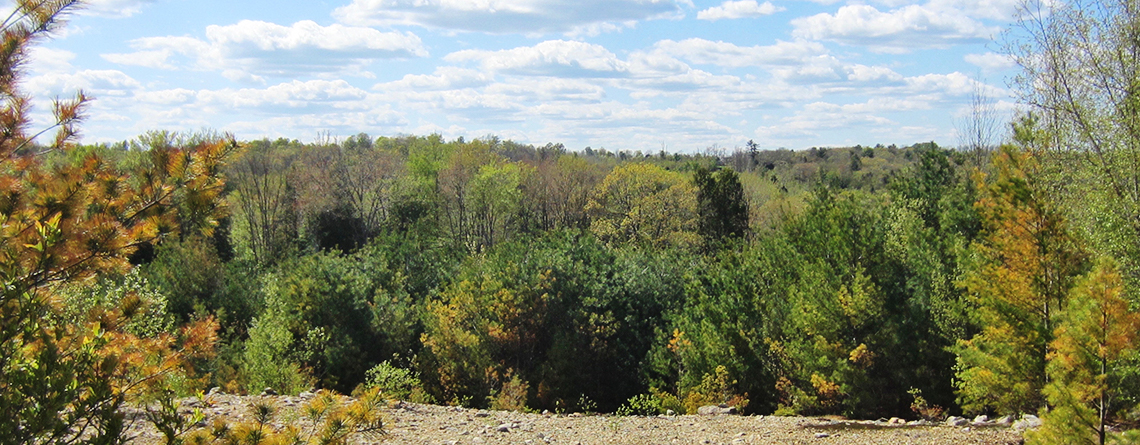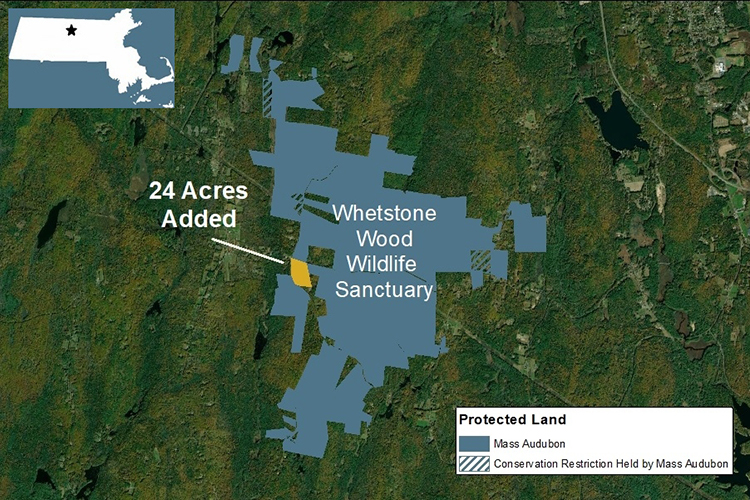At over 2,500 acres, Whetstone Wood Wildlife Sanctuary is already Mass Audubon's largest wildlife sanctuary. And it just gained another 20 acres of prime forest and wooded wetlands that bridges the sanctuary from west to east across New Salem Road in Wendell.
Eleanor Wetherby agreed to sell the property to Mass Audubon with the understanding it would be conserved. The property has been in the Wetherby family since 1922 when Charles A. Fiske conveyed it to Pliny Wetherby, Harold's father. Located at the intersection of New Salem and Morse Village Roads, the family used it for gravel and wood. Now it will be part of the Whetstone Wood Wildlife Sanctuary.
A Different Kind of Sanctuary
Whetstone Wood Wildlife Sanctuary is unusual for Mass Audubon because public access is quite limited. It was the vision of the original donors and founders of the sanctuary, Ina and Mason Phelps, to create a wildlife refuge where human impacts are deliberately kept to a minimum. Mass Audubon feels fortunate that they chose to work with us to implement their wildlands stewardship vision.
This critically located acreage in Wendell is a terrific example of the important role that strategic land conservation will play in climate change response.
First, it provides corridors to help plants and animals move in order to find more comfortable locations as the impacts of climate change become more pronounced. Whetstone forms a "bridge" of protected lands connecting literally tens of thousands of acres of conserved lands.
Second, the protection of the forested landscape benefits all of us by sequestering carbon, absorbing other greenhouse gases, and cooling temperatures, while also generating clean water and air.
Summer Home
The land is currently the home of a nesting pair of Broad-winged Hawks. "Broadies" eat mammals such as chipmunks and voles, frogs and snakes, and smaller birds. They like the mixed deciduous/coniferous woodlands and use parts of woodlands for nesting that Red-tailed Hawks do not.
Broad-winged Hawks are a migratory species that flies south to winter in Central and South America.




